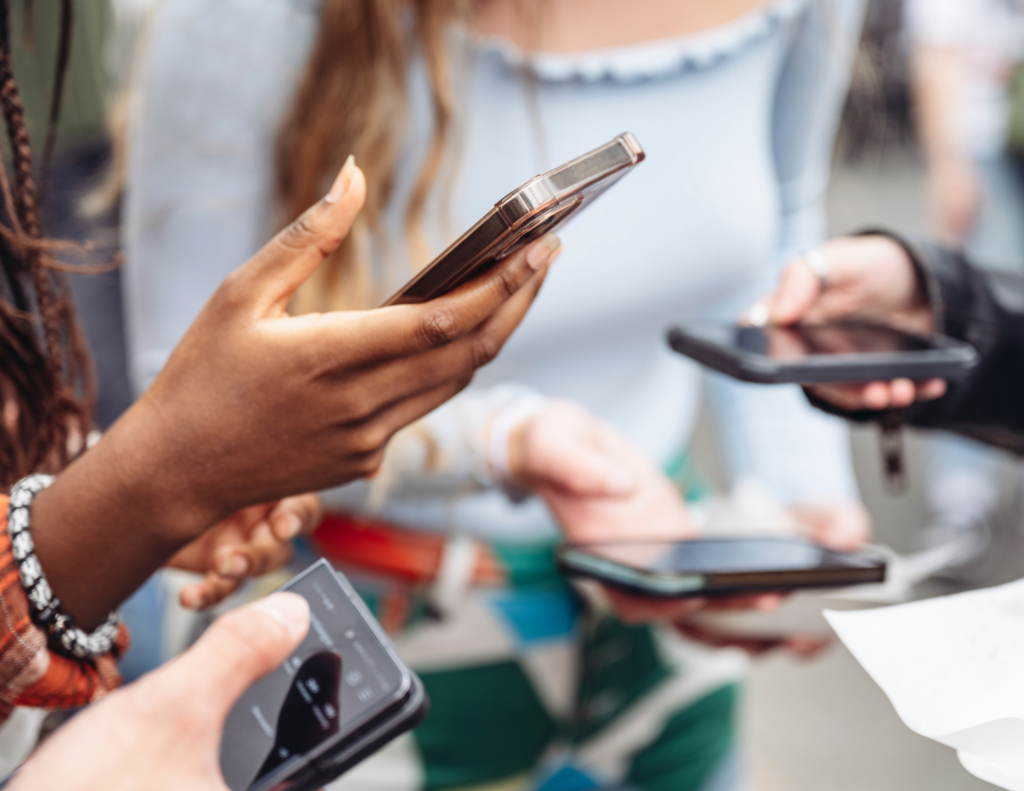Social Media and the Brain: Mental and Physical Impacts of a Digital World

In today’s digital age, social media has woven itself into the fabric of daily life. Whether you’re scrolling through a feed, sharing a story, or catching up with friends, the platforms are designed to capture and hold your attention. While social media has brought many positives, like connectivity and information access, its effects on the brain, as well as mental and physical health, are more complex than they appear on the surface. This blog delves into the ways social media affects brain function and discusses the broader mental and physical impacts of extended screen time and online interaction.
The Science of Social Media and the Brain
Social media is engineered to stimulate brain reward pathways, particularly through the neurotransmitter dopamine. Dopamine, often associated with pleasure and reward, is released whenever we engage in enjoyable activities. Social media’s structure of likes, comments, and shares provides an endless stream of micro-rewards, sparking brief bursts of dopamine that can be highly addictive. Studies indicate that these small doses of satisfaction fuel our desire to return to platforms repeatedly, even when we know they might negatively impact our well-being.
When a person posts a photo and receives validation through likes or comments, their brain processes this as a rewarding experience. However, the effects are fleeting, leading to a cycle of continuous checking to recreate the dopamine surge. Over time, this cycle can alter neural pathways, reinforcing the habit of social media use and making it harder to step away, akin to other addictive behaviors.
Mental Health Impacts: Anxiety, Depression, and Self-Esteem
-
Increased Anxiety and Fear of Missing Out (FOMO)
Social media contributes to heightened anxiety, partly due to a phenomenon known as "Fear of Missing Out" or FOMO. This anxiety stems from constant comparisons with others' curated lives and the pressure to keep up. Watching others attend events, enjoy vacations, or achieve milestones can evoke a sense of inadequacy, sparking worry about one’s social standing and whether they measure up. Studies show that people who experience FOMO are more likely to have higher levels of stress, anxiety, and even reduced life satisfaction.
-
Depression and Loneliness
While social media connects us digitally, paradoxically, it often leaves users feeling more isolated. Excessive use has been associated with increased rates of depression and loneliness, as many users inadvertently isolate themselves from real-world connections. The highlight reels that are displayed on social media tend to showcase the best parts of others’ lives, leading to “upward comparisons.” These comparisons can make users feel inferior, especially if they’re already struggling with low self-esteem or other mental health challenges.
Research published in the Journal of Social and Clinical Psychology found that individuals who limit their social media use to about 30 minutes per day report reduced levels of loneliness and depression. This correlation suggests that while social media has a place in enhancing connections, it can become a source of negative self-reflection when used excessively.
-
Impact on Self-Esteem and Body Image
Social media frequently emphasizes appearance, with filters, editing, and photoshopped images reinforcing unrealistic beauty standards. For teens and young adults, especially, constant exposure to perfected images can lead to body dissatisfaction and low self-esteem. Platforms like Instagram and TikTok are particularly visual, creating a fertile ground for comparisons. This exposure can sometimes lead to conditions like Body Dysmorphic Disorder (BDD), where individuals become overly focused on perceived flaws in their appearance.
A study by the Royal Society for Public Health found that Instagram had the most significant negative impact on mental health among youth, affecting body image, sleep, and self-esteem. Social media’s ability to amplify insecurities can cause users to question their self-worth and make self-acceptance difficult.
Physical Impacts of Prolonged Social Media Use
-
Disrupted Sleep Patterns
One of the most well-documented physical effects of social media usage is sleep disruption. Screen time before bed interferes with melatonin production, a hormone that regulates sleep. This effect, combined with the mental stimulation of scrolling, keeps the brain alert and delays the natural process of winding down for rest. Poor sleep quality is linked to a range of health problems, from impaired cognitive function to weakened immunity. Sleep disruptions can also exacerbate mental health issues, creating a feedback loop of anxiety, poor sleep, and heightened social media use.
-
Poor Posture and Physical Strain
Scrolling, swiping, and typing may seem harmless, but these repetitive actions contribute to poor posture, often leading to neck and back pain. “Text neck,” a condition resulting from tilting the head forward for extended periods, is increasingly common among social media users. This posture strain affects the spine and contributes to muscle fatigue, tension headaches, and even breathing difficulties over time.
-
Impact on Eye Health
Prolonged screen exposure strains the eyes, leading to symptoms of Computer Vision Syndrome, also known as digital eye strain. Symptoms include dry eyes, headaches, blurred vision, and difficulty focusing. The blue light emitted by screens is particularly harsh on the eyes and can contribute to retinal damage if not moderated. Blue light exposure also suppresses melatonin production, further worsening sleep quality, especially in users who engage with social media before bedtime.
ARTICLE CONTINUES BELOW
Schedule a Consultation TODAY!
We would love to sit down with you and chat about your experiences and current pain points.
Social Media Addiction and Mental Well-being
The addiction potential of social media is similar to other behavioral addictions, such as gambling. The unpredictability of rewards — whether a post will receive a lot of likes, or if a new notification will appear — keeps users coming back for more. This compulsion often replaces other meaningful activities, including hobbies, exercise, and face-to-face interactions.
A 2017 study from Harvard University found that social media’s ability to engage reward circuits in the brain is similar to that of addictive substances, explaining why some users find it challenging to reduce their time online. This dependency can reduce overall life satisfaction, contributing to anxiety, reduced attention span, and heightened impulsivity.
Strategies for Healthier Social Media Use
-
Limit Screen Time
Setting daily limits on social media use can create a healthier balance. Many smartphones have built-in screen time trackers that allow users to monitor their usage and set reminders to take breaks. Studies show that restricting social media use to around 30 minutes daily can enhance mental well-being without entirely disconnecting.
-
Curate Your Feed for Positivity
The content you consume influences your mental state, so consider unfollowing accounts that make you feel anxious, insecure, or frustrated. Instead, choose accounts that inspire, motivate, or educate. Curating your feed to focus on positive, uplifting content can significantly reduce social media’s adverse effects.
-
Practice Mindfulness and Limit Multitasking
Practicing mindfulness while using social media can help you become aware of how you feel while online. If you notice that social media increases your stress or frustration, use this awareness to step back. Engaging in other mindful activities, like deep breathing, meditation, or journaling, can help manage social media’s impacts on mental health.
-
Make Real-World Connections a Priority
Social media can connect people across distances, but real-world connections are essential for well-being. Make time to meet friends and family in person, engage in group activities, or participate in hobbies that allow for face-to-face interaction. Real-world social engagement promotes a sense of belonging that social media cannot replicate fully.
-
Introduce Digital Detoxes
A digital detox, even if just for one day each week, can help reset your relationship with social media. By stepping away, you allow your brain to recharge and your mental health to recalibrate. Digital detoxes also promote healthier habits, like engaging in physical activity or spending time outdoors.
Conclusion
Social media has transformed how we interact, providing countless benefits and unprecedented connectivity. However, it’s crucial to understand its impact on the brain and overall health. By recognizing the mental and physical challenges associated with prolonged use, you can adopt strategies that promote a healthier, more balanced relationship with these platforms. Social media doesn’t have to be an all-or-nothing experience; with mindful use, it can enhance rather than detract from overall well-being.
By curating our online experiences, prioritizing real-world relationships, and staying conscious of the effects social media has on our bodies and minds, we can embrace the positives while minimizing the negatives. Taking control of our screen time empowers us to leverage social media’s best aspects without compromising mental or physical health, creating a healthier and more rewarding relationship with the digital world.
Schedule Your Telehealth Consultation
We would love to sit down with you and chat about your experiences and current health complaints.
The information on this website has not been evaluated by the Food & Drug Administration or any other medical body. We do not aim to diagnose, treat, cure or prevent any illness or disease. Information is shared for educational purposes only. You must consult your doctor before acting on any content on this website, especially if you are pregnant, nursing, taking medication, or have a medical condition.

By Dr. Todd W. Bunning
Dr. Todd W. Bunning’s Chiropractic and Functional Medicine services reach far beyond the local Roseville area, with webcam consultations available for patients in any location. With over 21+ years of Private Practice experience, Dr. Todd continues to focus on the individual: science-based methods to address whole-body health factors.
Dr. Todd’s education didn’t stop when he graduated from Life West Chiropractic College in 2003. Today, he’s continuing to receive training and is chipping away on numerous post-graduate degree programs. This unique blend of clinical health investigation and Lifestyle Medicine application helps people of all ages find the underlying factors that result in chronic disease.